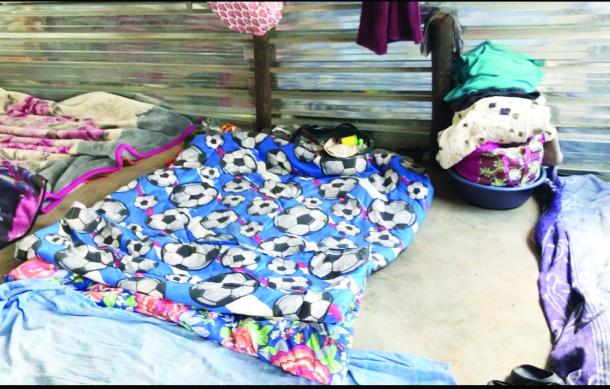
The scenes at Mburu-uru Primary School in the Kavango West Region are shocking.
Instead of desks and chairs, some learners sit on three logs inside makeshift classrooms constructed from corrugated iron sheets and poles.
In the hostel, overcrowding has forced some children to sleep on the floor due to a lack of beds. The limited bathroom facilities consist of an enclosed space with a few buckets and utensils on the bare floor.
Established 53 years ago, Mburu-uru Primary School is situated in Mburu-uru village within the Katjinakatji Circuit.
It currently accommodates 204 learners from pre-primary to Grade 6 in two permanent and three temporary classrooms.
The school serves learners from surrounding villages, including Nyondo, Nkambe, Sava, Nkuyumuko, and Nkandi, as well.
With enrolment rising from 153 learners last year to 204 this year, the hostel population has also swelled from 41 to 70.
This increase has worsened the school's challenges.
A critical shortage of classrooms and administrative space has resulted in overcrowded learning conditions, with more than 50 learners in a single classroom—far exceeding the required 35-student ratio per class.
Kudumo Sakeus, a teacher at Mburu-uru PS, said they also lack decent bathrooms at the school and hostel.
"There are no proper sanitation facilities. The school has only one pit latrine for both male and female teachers, while learners use the bushes or open space to relieve themselves."
Hostel conditions are equally dire, with a severe shortage of mattresses, forcing learners to sleep on the floor and share bedding.
The school relies on drought relief food supplies but is facing severe shortages. Every month, it receives 12 tins of fish, a 12.5-kilogramme bag of maize meal, and 50 kilogrammes of meat—barely enough to sustain 70 learners.
"The parents try their best to contribute N$200 per learner each term to buy food, but it is still a challenge because we end up finding ourselves with a lack of food to feed our learners."
Teachers also expressed concerns over the unsafe conditions of the corrugated iron classrooms, which become unbearably hot in the summer and too cold in the winter.
Approached for comment, Tondoro Constituency Councillor Joseph Sivaku Sikongo said the government should investigate the school's demands, as Namibian children deserve to be educated in healthy environments.
Mburu-uru Primary School principal Emersiana Siteketa revealed that despite engaging with the Director of Education for Kavango West last year, no action has been taken. A follow-up letter sent to the inspector of education for the Katjinakatji Circuit on 23 January 2025 also went unanswered.
Among the school's urgent needs are chairs and desks, Grade 6 textbooks, four additional classrooms, an administration block, and proper toilets for both learners and teachers.
Attempts to get a comment from Kavango West's Director of Education, Pontianus Musore, were unsuccessful, as calls went unanswered.





